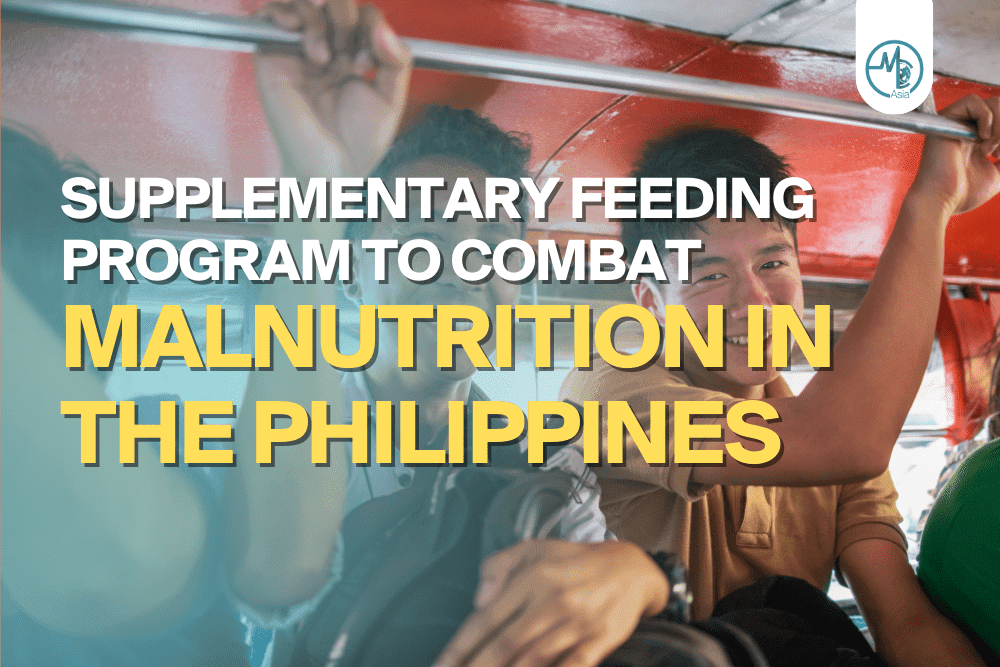The Department of Social Welfare and Development (DSWD) of the Philippines has forged partnerships with local government units (LGUs) to implement the Supplementary Feeding Program (SFP).
The SFP was due to a steadfast commitment to combat malnutrition among young Filipino children. This initiative aligns with the principles outlined in Republic Act 11037, known as the “Masustansyang Pagkain para sa Batang Pilipino Act. This is positioned as a critical element within the government’s Early Childhood Care and Development (ECCD) program.
The collaborative efforts underscore the dedication of the Marcos administration toward building a hunger-free Philippines. Moreover, DSWD Assistant Secretary for Legislative Affairs Irene Dumlao recently reaffirmed the department’s commitment to elevating the nutritional condition of young children through community-based feeding programs.
Empowering Communities for a Hunger-Free Philippines
Dumlao emphasised the pivotal role of community-based feeding programs in the overall strategy to uplift the nutritional well-being of Filipino children. The DSWD seeks to translate its vision into a tangible reality. It imagines a Philippines free from the shackles of hunger. This can be achieved by cultivating partnerships with national agencies, LGUs, and development partners. The concerted efforts aim not only to address immediate nutritional needs. It also aims to lay the groundwork for sustainable community development.
Supplementary Feeding Program
At the forefront of these efforts is the Supplementary Feeding Program (SFP). It is designed to benefit children aged 2 to 4 enrolled in supervised neighbourhood play (SNP) and children aged 3 to 5 enrolled in child development centers (CDCs). The school year 2022/2023 witnessed close to two million children receiving at least one fortified meal for 120 days. This enhances their nutritional intake and overall health. Building on this success, the 13th cycle, started in August 2023, extended its reach to 864,998 children beneficiaries. It provided them with nutritious meals that included indigenous and locally produced foods. These foods met one-third of the Recommended Energy and Nutrient Intake (RENI).
Walang Gutom 2027 Food Stamp Program
Beyond the immediate impact of the SFP, Dumlao revealed the DSWD’s forward-looking strategy. That is the scaling up of the pilot implementation of the Walang Gutom 2027: Food Stamp Program (FSP) in the first half of the current year. This program is designed to act as a supplementary measure to ensure food security. Subsequently, it aims to provide additional support to vulnerable populations, particularly children and families facing economic challenges.
Regional Initiatives: Bangsamoro Umpungan sa Nutrisyon (BangUN) Project
Recognising the challenges faced by communities within the Bangsamoro Autonomous Region in Muslim Mindanao (BARMM), the Department of Social Welfare and Development (DSWD) has undertaken a groundbreaking initiative known as the Bangsamoro Umpungan sa Nutrisyon (BangUN) Project. The immediate goal is to alleviate hunger and malnutrition among children in BARMM. Moreover, this project aims to provide essential healthcare support to pregnant and lactating mothers. As of 2023, the BangUN Project has demonstrated significant success. It has successfully reached out to 3,133 pregnant and nursing mothers. Additionally, it has positively impacted the lives of 18,867 children in the region.
At its core, the BangUN Project is designed to be more than just a nutritional assistance program. It recognises maternal health’s critical role in ensuring the well-being of both mothers and their children. By extending crucial healthcare support to pregnant and lactating mothers, the initiative aims to break the cycle of malnutrition, starting from the earliest stages of a child’s development.
Conclusion
The DSWD’s multifaceted approach, encompassing the Supplementary Feeding Program, the upcoming Walang Gutom 2027 Food Stamp Program, and region-specific initiatives like the BangUN Project, reflects a comprehensive commitment to nurturing the health and well-being of Filipino children. By fostering collaboration at various levels and implementing innovative strategies, the DSWD strives to address immediate nutritional needs and build a sustainable foundation for a healthier and hunger-free Philippines in the years to come. In doing so, the department plays a crucial role in shaping the future of Filipino children and fostering a society where no child goes to bed hungry.

